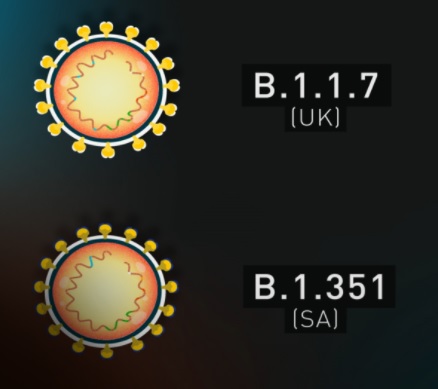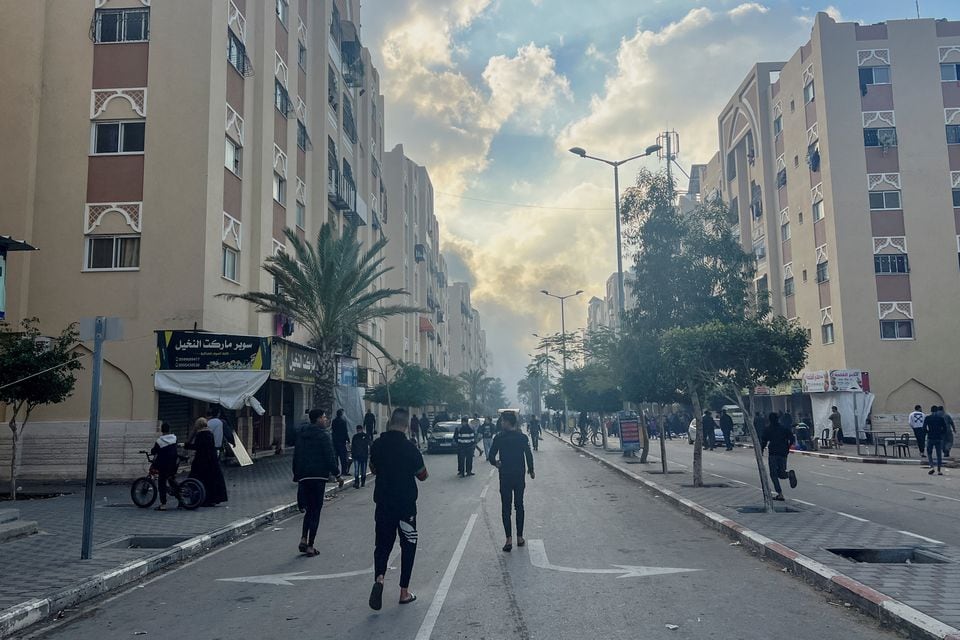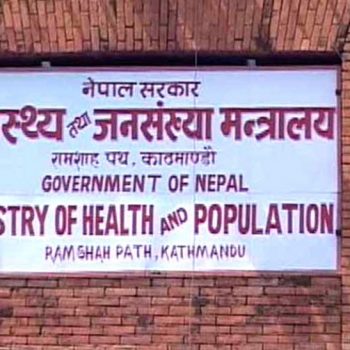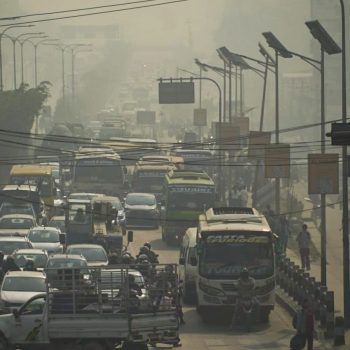- Coronavirus is becoming more dangerous with changes in its genes.
- Vaccines are thought to be less effective against rapidly emerging variants.
- Getting a vaccine may not necessarily protect against the new emerging variants equally well.
- ONE RISK IS THAT THE VACCINE APPROACH MAY SLOWLY TEND TO FAIL.
- Social distancing, masks, handwashing and prevention practices are there to stay.
NOW IS NOT THE TIME TO TRAVEL. The Covid Pandemic Risks damaging globalization in many ways. Apart from behaviour change in terms of prevention, it also adds a significant risk in terms of travelling, participation in crowded events, hazards related to promiscuity etc.
The CNN has reported a dangerous trend of the 4 Coronavirus variants that are rampaging the World and causing a big headache in terms of vaccine effectiveness.
A variant causing surging Covid cases in Brazil’s Amazon region shows up in Minnesota. Another that’s been spreading in South Africa shows up in South Carolina.
Scientists expect to see the coronavirus changing and evolving — it’s their nature.
BUT THE SPEED OF THE MUTATIONS AND THE REPORTED DECREASED EFFECTIVENESS OF VACCINES IS A BIG CAUSE FOR CONCERN
And with so much unchecked spread across the U.S. and other parts of the world, the virus is getting plenty of opportunities to do just that.
CNN reports that these four new variants are causing great concern.
Dr. Anthony Fauci has meanwhile observed a few warning signs as reported by the Business Insider:
- Johnson & Johnson and Novavax’s vaccines have been less effective again a new virus variant.
- “It’s really a wake-up call for us,” Dr. Anthony Fauci said.
- People should still be vaccinated as quickly as possible, Fauci added.
“It’s really a wake-up call for us to be nimble and to be able to adjust as this virus will continue for certain to evolve and mutate,” said Fauci, who’s the director of the National Institute of Allergy and Infectious Diseases.
He spoke on a conference call that the National Institutes of Health held to discuss data on Johnson & Johnson’s coronavirus vaccine. J&J said its vaccine was 66% effective at preventing moderate and severe cases of COVID-19 overall, but less effective in South Africa, where a virus variant is spreading. Novavax on Thursday said its coronavirus vaccine was also less effective against that coronavirus variant.
Further in the analysis, the BI reports that experts had previously expressed hope that the COVID vaccines currently on the market, as well as those that were in development, would hold strong against variants as long as there were no major changes to the spike protein — a key component of the virus. But the South African variant has alterations to that portion of the virus.
Even the two vaccines currently on the market in the US, made by Moderna and Pfizer, may be affected by the new variant. Both companies have said that their vaccines should still produce enough protective antibodies to stop the virus, though lab results have shown the protection may be diminished. As a precaution, Moderna and Pfizer are now working on booster shots that could target variants directly.
Going by the CNN report adapted below, that lists the variants, the signs are quite ominous.
WHICH ARE THE BAD FOUR CORONAVIRUS VARIANTS THAT ARE CAUSING SLEEPLESS NIGHTS?
“The variants that have been identified recently seem to spread more easily. They’re more transmissible, which can lead to increased number of cases, and increased stress on our already overtaxed system,” Dr. Rochelle Walensky, the newly appointed director of the Centers for Disease Control and Prevention, said in a briefing Wednesday.
What scientists most fear is that one will mutate to the point that it
- causes more severe disease,
- bypasses the ability of tests to detect it
- or evades the protection provided by vaccination.
While some of the new variants appear to have changes that look like they could affect the immune response, it’s only by a matter of degree.
Governments are already reacting. Colombia banned flights from Brazil, and Brazil banned flights from South Africa. It’s almost certainly too late to stop the spread, and there’s some indication the mutations in these variants are arising independently and in multiple places.
Here’s what’s known about the top four.
B.1.1.7
At the top of the list for researchers in the U.S. is the B.1.1.7 variant first seen in Britain. The CDC has warned it could worsen the spread of the pandemic. It reports more than 300 cases in 28 states — but those are only the cases caught by genomic sequencing, which is hit and miss in the U.S.
Although hearing about mutant new viruses can frighten people, scientists say they are reassured by what they have found: The human immune system can handle the variants that have sprung up so far, especially B.1.1.7.
“As far as we know it is transmitted in exactly the same way,” Gregory Armstrong, who directs the Office of Advanced Molecular Detection at CDC, told CNN.
That means the same measures already known to reduce spread will also stop the new variants: mask use, social distancing, avoiding large groups or crowds and frequent handwashing.
However, the mutations in the variant help it enter cells more easily — which means if someone, says, breathes in a lungful of air that has virus particles in it, those particles are going to be more likely to infect some cells in the sinuses or lungs rather than bouncing off harmlessly. The worrisome changes enhance the spike protein that the virus uses to attach to cells, meaning people are more likely to become infected by an exposure.
So people need to try harder to prevent spread until vaccination can be sped up.
“In order to interrupt transmission, we are going to need higher rates of what we do to slow transmission,” Armstrong said. “We are going to need to pay more attention to wearing masks. And we will need to increase vaccine coverage.”
“The most recent data indicate from the UK that it appears to be a bit more virulent in the sense of potentially causing more serious disease,” National Institute of Allergy and Infectious Diseases Director Dr. Anthony Fauci told a webcast Thursday sponsored by the National Education Association.

B.1.351
The variant first seen in South Africa called B.1.351 or 501Y.V2 was reported for the first time in the U.S. Thursday, in South Carolina.
The two people lived in different parts of the state and neither had traveled recently, although Dr. Brannon Traxler, the health department’s interim public health director, declined to say whether that indicated the variant must be spreading in the community.
It’s been seen in more than 30 other countries, according to the World Health Organization.
“The variant which was first detected in South Africa has spread quickly beyond Africa and so what’s keeping me awake at night right now is that it’s very likely circulating in a number of African countries,” Dr. Matshidiso Moeti, WHO regional director for Africa, said Thursday.
It could help the virus partly escape the effects of vaccines. “There is more concern about immune escape,” Armstrong said. Vaccine makers and academic researchers are testing samples of this variant, along with others, to see if it can evade the immune response caused by vaccination.
Fauci says even so, there’s an extra cushion of immunity caused by vaccination. It gives some wiggle room. “The good news is the vaccines as they exist now still would be effective against the mutants. The sobering news … as you get more and more replication, you can get more and more of evolution of mutants, which means you always got to be a step ahead of it,” Fauci told CNN on Monday.
Teams at Columbia University, the Aaron Diamond AIDS Research Center at Columbia University and elsewhere have also been testing lab-made versions of the viral mutations against the blood of vaccinated people and say while there does seem to be a somewhat diminished effect of vaccination, its not enough to weaken protection — yet.
But Maryland-based vaccine maker Novavax released preliminary results of its coronavirus vaccine Thursday that showed while the vaccine was more than 89% effective in a Phase 3 trial in Britain, a smaller, earlier Phase 2 trial conducted in South Africa while the variant was circulating showed efficacy there was only 60%.
Just in case, Pfizer and Moderna say they are working to make booster vaccines that would address mutant versions. The design of the vaccines is meant to make that a quick and easy process — just plugging in a new version of the genetic code used to generate the vaccines will do it.
There’s also evidence the changes may help some escape from monoclonal antibody treatments made by Eli Lilly and Co. and Regeneron, also.
P.1
A variant suspected of fueling a resurgence of viral spread in Brazil turned up in Minnesota for the first time this week. It was in a traveler from Brazil, so there’s no indication yet of community spread.
This variant, called P.1, was found in 42% of specimens in one survey done in the Brazilian city of Manaus, and Japanese officials found the variant in four travelers from Brazil.
“The emergence of this variant raises concerns of a potential increase in transmissibility or propensity for SARS-CoV-2 re-infection of individuals,” the CDC said. P.1 also carries the E484K mutation.
L425R
Finally, there’s a new variant seen in California, as well as a dozen other states. “We don’t know yet what the significance of that one is,” said Armstrong. It also has a mutation in the receptor binding domain of the spike protein. It is called L425R and while it’s being found commonly, it’s not yet clear if it’s more transmissible.
Any viral strain can become more common because of what’s known as the founder effect. “The founder effect is a matter of a virus being in the right place at the right time,” Armstrong said. If a particular strain happens to be circulating when transmission increases because of human behavior, that strain will ride along and become more common not because it spreads more easily, but simply because it was there.
It will take more study to show whether these variants can increase the already astronomical spread of the virus. The U.S. has more than 25 million diagnosed cases and more than 430,000 deaths.
“The emergence of variants underscores the need for public health action,” Walensky advised.
“First, get vaccinated when it’s your turn. Also, some people may need help getting vaccinated — please consider helping your neighbors and loved ones schedule or travel to their appointments. Second, wear a mask. Practice social distancing and wash your hands. And finally, now is not the time to travel.”


 NepalPress
NepalPress














